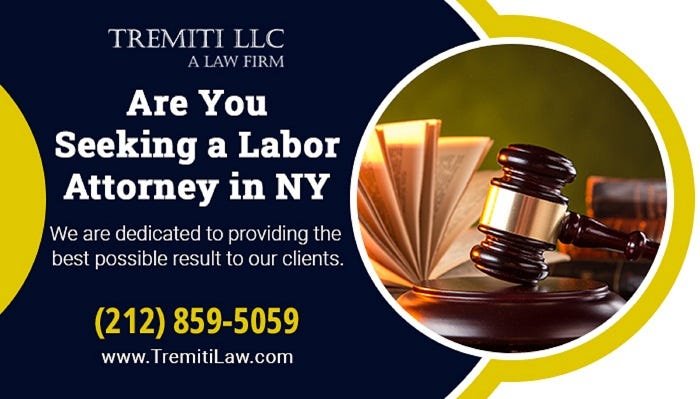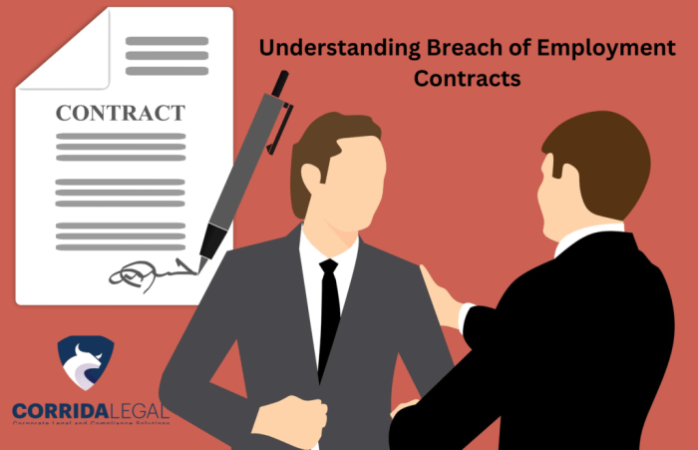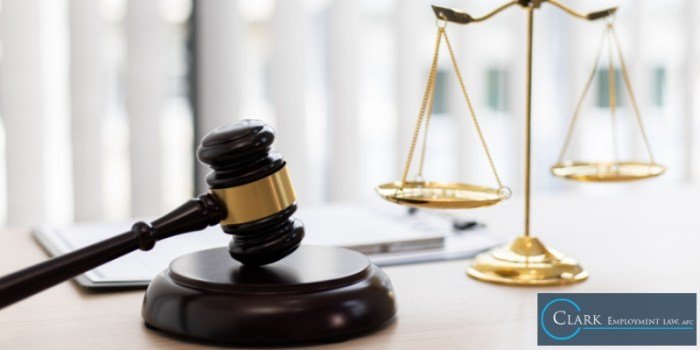
- Defining “Best” in the Context of Plaintiff Employment Law Attorneys
- Attorney Selection Process and Client Considerations
- Analyzing Attorney Websites and Online Presence
- Exploring Resources for Finding Qualified Attorneys
- Understanding the Attorney-Client Relationship
- Case Study: A Successful Wrongful Termination Case
- End of Discussion
- Key Questions Answered
Navigating the complexities of employment law can be daunting, especially when facing wrongful termination, discrimination, or wage disputes. Finding the right legal representation is crucial for achieving a favorable outcome. This guide explores the key factors to consider when searching for the best plaintiff employment law attorneys, empowering you to make informed decisions and protect your rights.
From understanding the criteria that define a “best” attorney – encompassing experience, success rate, client testimonials, and specialization – to mastering the attorney selection process, this resource provides a comprehensive framework. We delve into the intricacies of various plaintiff employment law areas, explore effective strategies for analyzing attorney websites, and offer valuable insights into building a strong attorney-client relationship. Ultimately, this guide aims to equip you with the knowledge and tools necessary to confidently navigate this critical legal landscape.
Defining “Best” in the Context of Plaintiff Employment Law Attorneys
Choosing the “best” plaintiff employment law attorney is a multifaceted decision, heavily dependent on individual circumstances and desired outcomes. There’s no single metric defining excellence, rather a combination of factors contribute to a holistic assessment. Understanding these factors is crucial for making an informed choice.
Defining a “best” attorney involves a careful consideration of several key criteria. Experience, success rate, client testimonials, and specialization all play significant roles in evaluating an attorney’s effectiveness and suitability for a particular case. These factors, while interconnected, often carry different weights depending on the specific needs and priorities of the client.
Criteria for Evaluating Plaintiff Employment Law Attorneys
The evaluation of a plaintiff employment law attorney’s effectiveness relies on a combination of quantitative and qualitative data. Quantitative data, such as years of experience and case win rates, provides a measurable benchmark. Qualitative data, like client reviews and attorney specialization, offer insights into the attorney’s approach, communication style, and overall client experience. A balanced consideration of both types of data paints a more complete picture.
For example, an attorney with 20 years of experience and a high success rate in discrimination cases might be considered “best” for someone facing age discrimination. However, that same attorney might not be the “best” choice for someone facing a wrongful termination claim involving a complex breach of contract issue, where a lawyer with specialized expertise in contract law would be more appropriate.
Examples of Metrics Contributing to Attorney Effectiveness Assessment
- Years of Experience: A seasoned attorney often possesses a deeper understanding of employment law intricacies, including precedents and legal strategies. An attorney with 15+ years specifically handling plaintiff-side employment cases is generally considered more experienced than one with only 3 years.
- Success Rate: While not the sole determinant, a demonstrably high success rate, particularly in cases similar to the client’s, indicates a track record of positive outcomes. This should be viewed in context, considering the complexity and type of cases handled.
- Client Testimonials: Positive reviews and testimonials provide valuable insights into an attorney’s communication style, responsiveness, and ability to build rapport with clients. They offer a qualitative assessment beyond numerical data.
- Specialization: Attorneys specializing in specific areas of employment law, such as wage and hour disputes or whistleblower protection, often possess in-depth knowledge and expertise leading to more effective representation in those specific areas.
Hypothetical Scenario Illustrating Variable Criteria Weighting
Imagine two clients: Client A, a middle-aged employee facing age discrimination, and Client B, a young tech worker facing wrongful termination due to a controversial social media post. For Client A, an attorney with extensive experience in age discrimination cases and a high success rate in similar cases would likely be deemed “best.” Client B, however, might prioritize an attorney with expertise in social media law and its intersection with employment law, even if that attorney has fewer years of experience or a slightly lower overall success rate. The “best” attorney differs based on the unique circumstances and legal issues involved.
Attorney Selection Process and Client Considerations
Choosing the right employment law attorney is crucial for a successful outcome in your case. This decision should not be taken lightly, as the attorney you select will significantly impact the process and the ultimate result. Careful consideration of several key factors will help ensure you find the best advocate for your situation.
Selecting an attorney involves evaluating various aspects beyond just their legal expertise. Understanding your needs and preferences, as well as the attorney’s approach, is essential for a productive attorney-client relationship. This includes understanding their experience, reputation, fee structure, and communication style, all of which contribute to a positive and effective legal experience.
Attorney Experience and Reputation
Experience plays a significant role in an attorney’s ability to handle your case effectively. Look for attorneys with a proven track record of success in plaintiff employment law cases similar to yours. This includes reviewing their case history, noting the types of cases they’ve handled, and the outcomes achieved. Additionally, researching their reputation through online reviews, bar association ratings, and testimonials from previous clients can provide valuable insights into their professionalism and effectiveness. A strong reputation, built on positive client experiences and successful case resolutions, is a key indicator of a skilled and reliable attorney.
Attorney Fees and Fee Structures
Understanding the attorney’s fee structure is vital. Two common fee structures are contingency fees and hourly rates. A contingency fee means the attorney only gets paid if they win your case, typically receiving a percentage of the settlement or judgment. This can be advantageous for clients with limited financial resources, as it eliminates upfront costs. However, the percentage can vary significantly depending on the attorney and the complexity of the case. Hourly rates, on the other hand, involve paying the attorney for their time spent on your case, regardless of the outcome. This provides more transparency in costs but can be more expensive upfront, especially for lengthy cases. Some attorneys may offer a hybrid approach, combining hourly rates for certain tasks with a contingency fee for the overall case resolution. It’s crucial to clarify the fee structure upfront, including any additional expenses such as court costs or expert witness fees.
Attorney Communication Style and Client Compatibility
Effective communication is paramount in any attorney-client relationship. You should feel comfortable communicating openly and honestly with your attorney. Consider their responsiveness, accessibility, and their ability to explain complex legal concepts in a clear and understandable manner. Schedule an initial consultation to assess their communication style and determine if you feel comfortable working with them. A strong attorney-client relationship built on trust and open communication is essential for a successful legal outcome. Remember, you’ll be working closely with this attorney, so choosing someone you connect with and trust is vital.
Attorney Selection Flowchart
The process of selecting an attorney can be streamlined using a structured approach. The following flowchart Artikels the key steps involved.
[Imagine a flowchart here. The flowchart would begin with “Identify Your Legal Needs.” This would branch to “Research Potential Attorneys.” This would then branch to “Review Attorney Profiles (Experience, Reputation, Fees).” This would then branch to “Schedule Consultations.” This would branch to “Evaluate Communication Style and Compatibility.” This would finally branch to “Select Attorney and Sign Agreement.”]
Analyzing Attorney Websites and Online Presence
Finding the right employment lawyer is crucial, and a thorough examination of their online presence can significantly aid your decision-making process. A well-designed website and a strong online reputation are key indicators of a competent and reputable firm. This section will guide you through evaluating these aspects to help you make an informed choice.
Key Elements of a Successful Attorney Website
A successful attorney website should be more than just a digital business card; it needs to project professionalism, competence, and build trust. Clarity, credibility, and ease of navigation are paramount. A confusing or poorly designed website can leave a negative impression, potentially deterring potential clients.
- Clear and Concise Information: The website should clearly state the attorney’s area of expertise (employment law, specifically plaintiff-side), contact information, and a brief overview of their practice. Avoid jargon; use plain language easily understood by non-legal professionals.
- Credibility and Authority: Showcase credentials, such as bar admissions, educational background, and professional affiliations. Highlighting significant achievements, awards, or publications further enhances credibility.
- User-Friendly Navigation: The website should be easy to navigate, with clearly labeled sections and a logical flow of information. A well-structured site allows visitors to quickly find the information they need without frustration.
- Professional Design and Branding: A visually appealing and professional design conveys a sense of competence and trustworthiness. Consistent branding across all platforms reinforces the firm’s identity.
- Client Testimonials and Case Results (Summary): Positive testimonials and summaries of successful case outcomes build confidence and demonstrate the attorney’s effectiveness. However, ensure these are genuine and not overly generic.
Checklist for Evaluating an Attorney’s Online Presence
Beyond the website itself, a comprehensive evaluation requires exploring the attorney’s broader online presence. This includes reviewing various online platforms for a holistic picture of their reputation and expertise.
- Website Review: Assess the website based on the criteria mentioned above (clarity, credibility, navigation, design).
- Online Reviews (Google, Yelp, Avvo, etc.): Check multiple review platforms for client feedback. Pay attention to both positive and negative reviews, looking for patterns or recurring themes.
- Testimonials on Website and Other Platforms: Examine testimonials for authenticity. Be wary of overly generic or glowing reviews that lack specific details.
- Case Results and Settlements (Summaries): Look for evidence of successful outcomes, but remember that past results do not guarantee future success. Summaries should be factual and not embellished.
- Social Media Presence (LinkedIn, etc.): Review the attorney’s social media profiles for professional conduct and engagement with the legal community.
- Professional Affiliations and Memberships: Verify affiliations with reputable legal organizations, indicating a commitment to professional standards.
Critically Evaluating Online Reviews
Online reviews can be invaluable, but it’s crucial to approach them critically. Not all reviews are genuine, and some may be biased or even fabricated.
- Look for Specific Details: Genuine reviews usually contain specific details about the attorney’s services, communication style, and the overall experience. Vague or generic reviews should raise suspicion.
- Identify Patterns and Trends: Consistent positive or negative feedback across multiple platforms is more reliable than isolated incidents.
- Consider the Reviewer’s Profile: Examine the reviewer’s profile to assess their credibility. A lack of detailed information or a history of posting only positive or negative reviews could indicate bias.
- Beware of Anonymity: While anonymity can protect reviewers, it also makes it easier to post fake or biased reviews. Pay more attention to reviews with verifiable identities.
- Cross-Reference Information: Compare reviews across different platforms. Inconsistencies may suggest fabricated reviews.
Exploring Resources for Finding Qualified Attorneys
Finding the right plaintiff employment law attorney is crucial for a successful outcome. Navigating the legal landscape can be challenging, but several reputable resources can significantly aid your search, each with its own strengths and weaknesses. Understanding these resources and how to effectively utilize them is key to finding an attorney who best suits your needs.
Numerous avenues exist for locating qualified plaintiff employment law attorneys. Effective attorney selection requires a strategic approach involving careful consideration of various factors and the diligent use of multiple resources to ensure a comprehensive search.
Reputable Resources for Finding Qualified Attorneys
Several resources provide avenues for finding qualified attorneys. These include state bar associations, online legal directories, and attorney referral services. Each offers a unique set of advantages and disadvantages.
It’s important to leverage multiple resources to maximize your chances of finding a suitable attorney. A multi-faceted approach allows for comparison and validation of information, ensuring a well-informed decision.
- State Bar Associations: Many state bar associations maintain attorney directories that include disciplinary information and areas of practice. This offers a degree of vetting, providing insight into an attorney’s experience and any potential disciplinary actions. However, these directories may not always offer detailed information on attorney specializations within employment law or client reviews.
- Online Legal Directories: Websites like Avvo, Martindale-Hubbell, and Justia provide attorney profiles often including client reviews, ratings, and practice area specifics. These offer readily accessible information and client perspectives, but the accuracy and objectivity of reviews should be critically assessed. Some directories also employ algorithms that may not accurately reflect the nuanced skills and experience of attorneys.
- Attorney Referral Services: These services, often run by bar associations or other legal organizations, connect individuals with attorneys based on their legal needs. They typically pre-screen attorneys, ensuring a degree of quality control. However, the selection process may be limited, and referral services may not cover all areas of employment law equally. Additionally, there might be fees associated with using these services.
Questions to Ask Potential Attorneys During a Consultation
A consultation provides a critical opportunity to assess an attorney’s suitability. Asking specific questions allows you to gauge their experience, approach, and communication style. Remember to prepare a list of questions beforehand to ensure you cover all necessary topics.
Thorough questioning during the consultation is vital to ensure a good attorney-client fit. It’s not just about legal expertise; communication, responsiveness, and understanding of your specific needs are also crucial for a successful case.
- Inquire about the attorney’s experience handling cases similar to yours, including specific examples of successful outcomes.
- Discuss the attorney’s fee structure and payment options, ensuring transparency and understanding of all costs involved.
- Assess the attorney’s communication style and responsiveness, determining if their approach aligns with your preferences.
- Clarify the attorney’s strategy for handling your case, including their approach to investigation, negotiation, and litigation.
- Inquire about the attorney’s support staff and their role in case management.
Understanding the Attorney-Client Relationship

The attorney-client relationship forms the bedrock of successful employment law litigation. A strong, trusting relationship built on open communication is crucial for achieving the best possible outcome for the client. This relationship necessitates a high degree of transparency, mutual respect, and a shared understanding of the legal process and its implications.
The success of any legal case hinges heavily on the quality of the communication between attorney and client. Effective communication ensures that the attorney fully understands the client’s situation, goals, and concerns. Conversely, the client needs clear, concise explanations of legal strategies, potential challenges, and realistic expectations. This back-and-forth exchange of information fosters trust and allows for collaborative decision-making throughout the legal process.
Ethical Responsibilities of Attorneys
Attorneys have a significant ethical responsibility to their clients, governed by professional codes of conduct and rules of professional responsibility. These responsibilities include maintaining client confidentiality, acting with diligence and competence, avoiding conflicts of interest, and providing honest and candid advice. Attorneys are bound by strict rules regarding the handling of client funds and must act in the client’s best interests at all times, even when facing difficult or complex situations. Breaches of these ethical responsibilities can lead to disciplinary action, including suspension or disbarment. A client’s trust is paramount, and ethical conduct is foundational to maintaining that trust.
Positive Attorney-Client Interaction: A Scenario
Imagine Sarah, a software engineer who believes she was unjustly terminated from her job due to gender discrimination. She consults with Attorney David Miller, known for his expertise in employment law and his client-centric approach. From their first meeting, David establishes clear communication protocols. He actively listens to Sarah’s story, asking clarifying questions to fully understand the nuances of her situation. He then explains the legal process in simple, understandable terms, avoiding complex jargon. He Artikels potential strategies, discusses the realistic possibilities of success, and openly addresses the associated costs and timelines. Throughout the case, David keeps Sarah informed of all developments, promptly returning her calls and emails. He explains complex legal documents in a clear and concise manner, ensuring Sarah understands every step of the process. When setbacks occur, David explains the reasons and explores alternative strategies, maintaining transparency and building Sarah’s confidence. The result is a successful resolution where Sarah receives a fair settlement, largely due to the effective communication and mutual trust fostered throughout the attorney-client relationship. This example showcases how open communication and a commitment to ethical practice lead to a positive outcome for both client and attorney.
Case Study: A Successful Wrongful Termination Case

This case study details a successful wrongful termination lawsuit, highlighting the legal strategy, evidence, and outcome. Understanding the elements that contributed to the plaintiff’s victory provides valuable insight into effective employment law litigation.
The case involved Ms. Eleanor Vance, a long-term employee of a major technology company, “TechCorp.” Ms. Vance, a highly skilled software engineer, was terminated after 15 years of service. TechCorp claimed the termination was due to “performance issues,” citing a recent project delay. However, Ms. Vance argued that the cited performance issues were pretextual, masking a discriminatory motive based on her age (she was 55 at the time of termination) and her complaints about gender inequality within the company.
Legal Arguments and Evidence
The plaintiff’s legal team built their case on two primary arguments: age discrimination and retaliation for reporting gender inequality. Evidence presented included Ms. Vance’s consistently strong performance reviews over the fifteen years prior to her termination. These reviews directly contradicted TechCorp’s claim of recent performance issues. Furthermore, emails and internal memos were presented to demonstrate a pattern of younger employees being promoted over more experienced candidates, while simultaneously showing instances of Ms. Vance being overlooked for advancement opportunities despite her qualifications. The plaintiff also presented testimony from colleagues who corroborated her claims of gender inequality and witnessed instances of ageist remarks from management.
The Outcome and Contributing Factors
The case proceeded to trial, and the jury found in favor of Ms. Vance. The jury awarded her significant compensatory damages for lost wages, emotional distress, and punitive damages to deter TechCorp from engaging in similar discriminatory practices in the future. The success of the case was largely attributed to several key factors: the meticulous documentation of Ms. Vance’s performance history, the compelling testimony of her colleagues, and the effective presentation of the evidence by her legal team. The attorney’s strategic decision to pursue both age discrimination and retaliation claims strengthened the case, providing multiple avenues for proving unlawful conduct. The attorney skillfully highlighted inconsistencies in TechCorp’s narrative, effectively undermining their defense. The clear and concise presentation of complex technical information to the jury was also crucial.
Attorney’s Strategy and Impact
The attorney’s strategy was crucial in achieving this successful outcome. They thoroughly investigated the case, gathering extensive documentation and witness testimony. Their strategy involved not only presenting a strong case for Ms. Vance but also effectively discrediting TechCorp’s defense. This was achieved through careful cross-examination of TechCorp’s witnesses and highlighting contradictions in their testimony and documentation. The attorney’s skillful presentation of evidence, including the use of visual aids to simplify complex technical details, ensured the jury understood the key issues in the case. The attorney’s aggressive yet professional approach in the courtroom played a significant role in the jury’s verdict.
“The successful outcome in this case underscores the importance of meticulous preparation, strong evidence, and a skilled legal team in employment law litigation.”
End of Discussion

Securing the services of a skilled plaintiff employment law attorney is paramount in protecting your rights and achieving justice. By carefully considering the factors Artikeld in this guide – from assessing an attorney’s experience and online presence to understanding fee structures and the attorney-client relationship – you can confidently navigate the legal process. Remember, thorough research and clear communication are key to finding the best advocate for your situation and achieving a successful outcome. Empower yourself with knowledge and take control of your legal journey.
Key Questions Answered
What is a contingency fee?
A contingency fee means the attorney only gets paid if they win your case, typically a percentage of the settlement or judgment.
How do I find client testimonials that are reliable?
Look for testimonials on multiple platforms (website, Avvo, etc.) and check if they seem genuine and detailed, avoiding overly generic praise.
What should I ask during a consultation with a potential attorney?
Inquire about their experience with similar cases, their fee structure, their communication style, and their approach to your specific situation.
What if I can’t afford an attorney?
Many attorneys offer free initial consultations, and some legal aid organizations provide assistance to those who qualify based on income.





